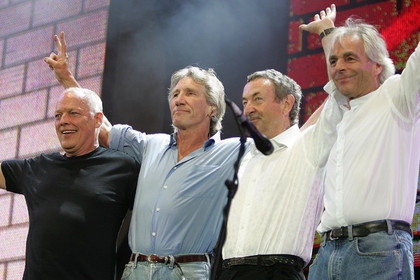Pink Floyd releases farewell album The Endless River
 10:55, 10 November 2014
10:55, 10 November 2014YEREVAN, NOVEMBER 10, ARMENPRESS. By the time Pink Floyd’s The Final Cut, Roger Waters’s “Requiem for the Postwar Dream”, came out in 1983, relations between him and the rest of the group were terrible – keyboard player Rick Wright had even been kicked out and rehired on a salary, for live shows only, at Waters’s insistence. So there’s a kind of poetry to the fact that, with Waters long gone, the new album – Pink Floyd’s first studio outing in two decades – is a tribute to Wright, who died of cancer in 2008.
As reports “Armenpress” citing The Guardian, it also features him heavily – he was back on board for 1994’s The Division Bell, and it’s from the sessions for that album that the material for this one has been taken.
By and large it’s an understated affair but unmistakably the Floyd, divided into four sides (and available on double vinyl), each with a different mood from the next. It also packs a great deal into 53 minutes – not least because some of the tracks are barely more than a minute and a half long. Nothing is dragged out.
Side one starts with voices discussing why people argue, before someone mutters, “The sum is greater than the parts”, and a deep boom gives way to the slow fade-up of scintillating synthesisers. David Gilmour uses an EBow on his guitar on this side, which makes it sound at times like it has been taped and played backwards and at others gives it a pleasing hum and buzz. It’s light-touch stuff, very pretty. Wright’s keyboards, meanwhile, are analogue perfection, It’s What We Do coming across like a quiet composite of Shine On You Crazy Diamond and Welcome to the Machine.
Drummer Nick Mason gets a go on side two, working up a fast tattoo on rototoms (even if he isn’t quite in his Live at Pompeii pomp) for Skins, with echo and weird atmospherics aplenty, courtesy of co-producer Youth. Then there’s a change of pace with pulsing Farfisa organ for Anisina, which starts like Us and Them and builds to a warm, triumphal peak, Gilad Atzmon’s soaring clarinet and throaty tenor sax trading licks with Gilmour’s high electric guitar.
Side three features more from Wright, first in the solemn piano of The Lost Art of Conversation then, sandwiched between the two slices of Allons-y (think some of the more rocked-up sections of The Wall), at the pipe organ of the Royal Albert Hall on (if not actually in) Autumn ’68. It’s a real treat, big, low pedal notes filling the speakers.
Stephen Hawking pops up next: Gilmour has chosen to use the same recordings of him talking about language from that mid-90s BT ad that he did on The Division Bell (Keep Talking). The wisdom of this may be moot, but it’s sincerely meant (Gilmour has spoken of being terribly moved by the words) and not out of place. In fact communication, or the lack of it, seems to be a major theme. One song, the closing Louder Than Words, has lyrics written by Gilmour’s wife, Polly Samson, about bitching and fighting, making up and carrying on. It’s quite fitting for a band that has had its fair share of conflict and turbulence – and also the kind of thing you might think of more when friends start popping off. The lyrics also refer to the sum and the parts (see side one) before the cascading, arpeggiating synths from the start of the album return and we come pleasingly full circle.
As well as The Endless River being Rick Wright’s swansong, Nick Mason and David Gilmour have said that it will be Pink Floyd’s last. It’s also the most pre-ordered album ever on Amazon, which is a pretty good way to call it a day.




















